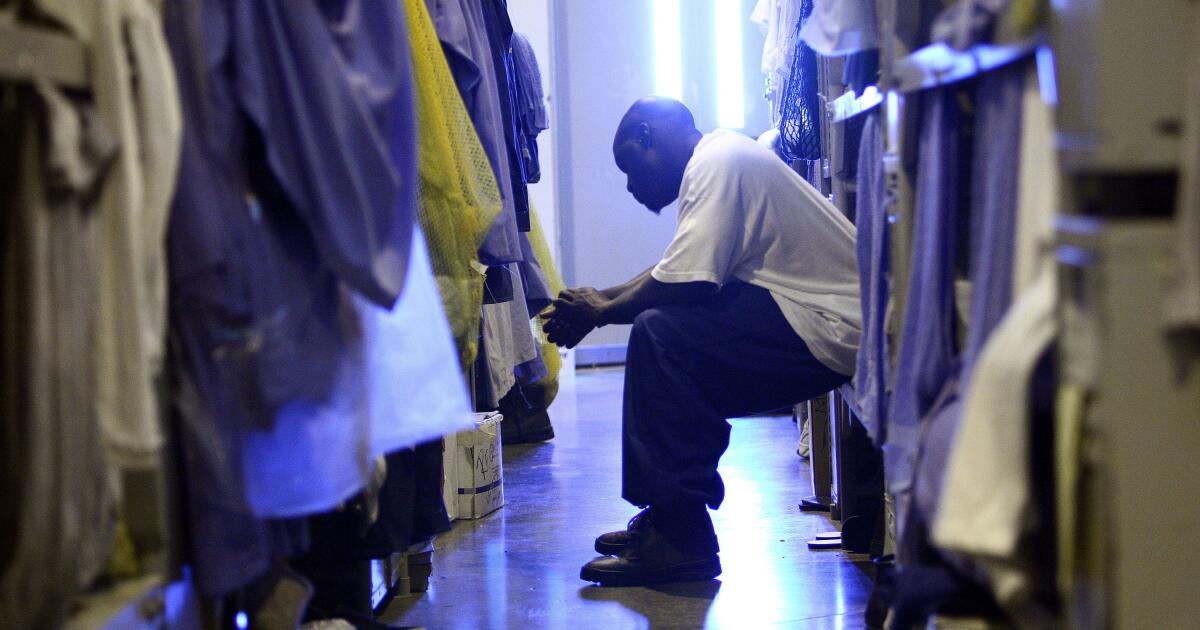When California lawmakers approved the Racial Justice Act in August 2020 — just months after a Minneapolis police officer killed George Floyd — many backers had high hopes it would help undo years of disproportionately lengthy sentences handed down to people of color.
The law allows convicted defendants to challenge the length of their prison terms if they can demonstrate racial disparities or discriminatory practices in the California jurisdiction where their case was prosecuted.
But five years after its passage, the law has hardly been used, according to an analysis of newly obtained sentencing data by the Stanford Law School Three Strikes Project and NAACP’s Legal Defense Fund.
Across California “there has been no finding by any judge of disparate sentencing” as outlined by the law, according to Michael S. Romano, director of the Stanford Law project.
On Monday, the Stanford Law group and the NAACP Legal Defense Fund announced the filing of 18 new petitions between five counties — including Los Angeles and Riverside — citing “gross racial disparities in sentencing for low level common crimes under the Three Strikes law.”
In L.A. County, the Stanford group said sentencing data showed that, compared with white defendants, more than 13 times as many Black people are serving life for attempted robbery under Three Strikes.
One of the state prisoners seeking a reduced term is John Crawford, who was sentenced in L.A. County to 45 years to life for attempted second-degree robbery. In 2018, Crawford, who is now 41, “approached a man on the street and asked for his wallet and phone, and the man ran away,” according to his petition.
The filing goes on to cite the elevated rate of life sentences among Black people in L.A. County for attempted robbery, adding that those convicted of the offense are sentenced to prison terms that are 36% longer than white suspects who faced the same charges.
The petition claims Crawford “is entitled to a new, full and fair sentencing” under the Racial Justice Act.
“Given how broad the disparities are, I think it’s quite alarming and I think the courts will agree,” Romano told The Times. “We’re asking for our clients to be resentenced, essentially to the sentence white people received for the same crime and circumstances.”
When legislators were debating the Racial Justice Act, critics claimed it would lead to a mass release of dangerous prisoners. That hasn’t happened. Instead, the law has been used in some instances by people seeking redress for racially biased behavior by individual law enforcement officers.
Statewide, “defendants in only about a dozen cases have succeeded in proving that bias affected their criminal case,” the Garrison Project and CalMatters reported in November 2024.
The goal of the Racial Justice Act is “to root out racism in all its forms from the criminal justice system, and one form of racism we’ve come to realize in the last 10 years is systemic racism,” Jody Armour, a law professor at USC who studies the intersection of race and justice, told The Times last year.
The ultimate goal of the joint Stanford Law and NAACP Legal Defense Fund effort, according to Romano, is “not only to do justice by our own clients but to pave the way for other people to raise similar claims in the future.”

